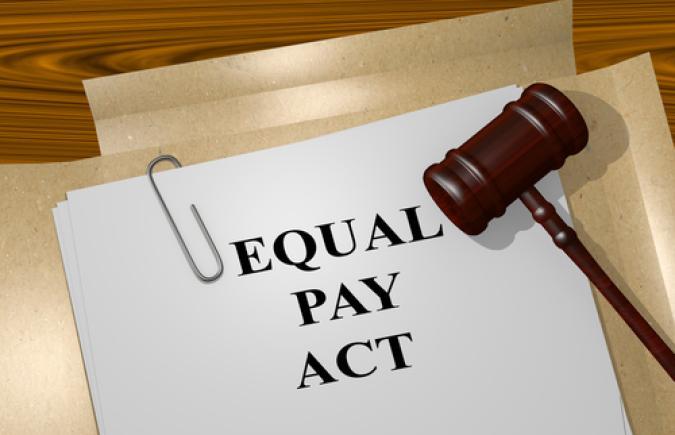The Equal Pay Act of 1963 provides an important enforcement mechanism to challenge unlawful and discriminatory pay practices for employees in both the public and private sectors. The law mandates that employees performing substantially equal jobs for the same employer must be rewarded with equal pay, including both wages and benefits, regardless of their sex.
As the Supreme Court explained, “the wage structure of ‘many segments of American industry has been based on an ancient but outmoded belief that a man, because of his role in society, should be paid more than a woman even though his duties are the same.’ The solution adopted [to resolve this] was quite simple in principle: to require that ‘equal work will be rewarded by equal wages.’” Corning Glass Works v. Brennan, 417 U.S. 188 (1974) (emphasis supplied).
Nevertheless, sixty years after the Equal Pay Act was enacted, the gender wage gap persists, and women in the United States still earn only approximately 77 cents for every dollar earned by men. Equal pay violations are prominent in a broad range of industries, including technology, professional sports, pharmaceuticals, finance, higher education, and media.
The EPA makes it unlawful for a covered employer to pay different wages to employees who are performing the same job under the same conditions and with the same experience or education based on sex. Aside from paying employees of one sex a lesser wage than their counterparts of the opposite sex in the same position, other evidence supporting a violation of the Equal Pay Act can include, but is not limited to:
- Absence of members of one sex in leadership positions;
- Roadblocks to promotions for employees of a particular sex;
- Discouragement from discussing and/or negotiating salary increases;
- Being paid a lower salary than predecessor of the opposite sex for the same job, or if an employee has recently changed jobs, learning that their replacement of the opposite sex was offered a higher salary for the same job;
- Fewer benefits provided to employees of one sex than to colleagues of the opposite sex in in the same position, such as stock options, paid leave, or pension contributions; or
- An atmosphere akin to a “boys club” or “fraternity.”
Damages for Equal Pay Act violations include backpay, liquidated damages, and attorneys’ fees and costs. Individuals alleging Equal Pay Act violations can go directly to Court and need not first file an EEOC charge.
Significantly, employees who report Equal Pay Act violations or otherwise oppose unlawful practices are protected against retaliation. In addition to the federal law, many states have enacted equal pay laws which also serve to protect workers from unlawful gender-based pay discrimination.
If you believe you have been subjected to gender-based pay discrimination or have not been paid the wages to which you are lawfully entitled, please contact us at [email protected] for more information about pursuing your rights.


